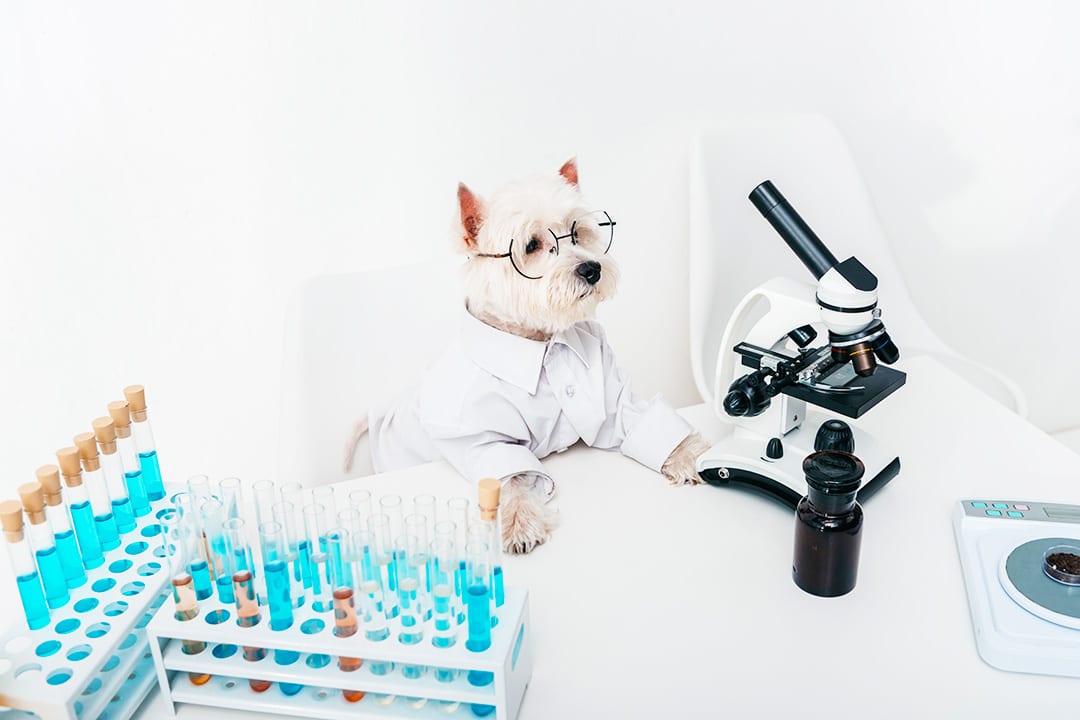Vivisection: the end is nigh…at last!!
Today we are going to touch on one of the most controversial subjects that affect animals. Vivisection. The use of animals, including dogs, to test virtually anything supposedly in the advancement of knowledge that benefits humans.
Fortunately, this practice may be coming to an end in the not-too-distant future.
WARNING. If this is a subject that will cause you distress then may I suggest that you give this one a miss.
This topic is rarely discussed rationally for several reasons. For a start, it’s because very few people have any real first-hand knowledge of the subject and secondly because emotion overrides common sense.
I have a rare insight into this emotive subject because I am one of the very few people who has actually been inside an animal research facility.
My tenure was short, very short, and it occurred some 55 years ago. I was not involved in any activity that caused any animal distress, and after this went into veterinary nursing. My reasons for even being there are probably worthy of a blog, but that is for another time.
Beyond dispute
This is a subject where I think some issues are beyond dispute. Surely there can be no justification for manufactured products to be tested on animals. If the manufacturers of items such as paint, cosmetics, household items etc, want to find out if they are corrosive, have long-term detrimental effects or are just ineffective, then they can test these items using cultures or on themselves. If people want to find out how the body reacts to extreme climate conditions, then again, let them try it themselves. If a new product is discovered or upgraded, then it should not be tested on animals.
Let’s face it. Animals do not naturally smoke, drink alcohol, use cosmetics or use household cleaning products. They don’t use items derived from petroleum or any of the multitudes of items that they have had to test Enough is enough.
BUT, and it is a big but…
On December 3rd 1967, the first heart transplant was done by Christiaan Barnard, a South African heart surgeon.
Now he didn’t wake up one morning and say.
“Hey guys, we are gonna try a heart transplant today.”
It was years in the planning.
The nearest animal with a heart to replicate our own system is the pig, so it is reasonable to assume that Barnard must have used pigs and the only way he could have discovered that is to have used other animals first. For all we know, he may even have used a dog. Recently the heart was from a genetically modified pig that was transplanted into a human. The patient lived for two months, and of course, so much will have been learned. Imagine a pig’s heart being transplanted into a human. However, what happened to the pig? Yes, it died, like so many animals that we have used over so many years to glean the knowledge that would make the operation possible. How do we come to terms with that? For those people who campaign so vigorously against ALL forms of vivisection, if it was a family member or them personally, would they refuse the chance of life, or would they accept surgery? If you were the parent of a sick child, would you deny them a life-saving operation because an animal has lost its life? We need to come to terms with the painful fact that all modern surgical techniques were first performed on animals. The medication we use and the vaccines that we benefit from may be tested on animals. It could be argued, alongside many others, I am alive today because of animal experiments. Am I happy about it? No. Do I think about what animals were used? Yes.
Modern advancements
Today with the availability of the internet and modern communication methods, it obviously is easier for surgeons to access information, but I remember more than 50 years ago, I would stand on the other side of the operating table assisting a veterinary surgeon who would admit.
“I have never done this, I don’t know anybody who has done this. I don’t even know if it will work. The only thing I do know is the theory.”
Recently Swiss voters were against a proposal to ban animal testing.
Why?
Because they accepted the argument that it would be detrimental to the nation’s healthcare which is considered to be one of the best in the world.
So why is the need to use animals for experimental use coming to an end? It’s quite simple, modern technology. The discovery of Artificial Intelligence. Virtual Reality and the advancement of the Metaverse means that it is now becoming possible to try out a drug or practise a surgical procedure in this parallel world without trying it out on an animal. It’s not going to happen overnight, but in the not-too-distant future, drug testing, vaccines, and complicated surgical procedures will be undertaken first in this virtual world, and our exploitation of animals for testing will eventually become unnecessary.
“The question is not, can they reason? nor, can they talk?, but can they suffer?”
Jeremy Bentham
Philosopher






